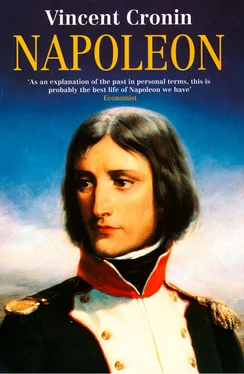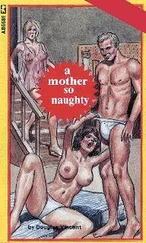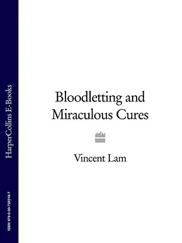Vincent Cronin - Napoleon
Здесь есть возможность читать онлайн «Vincent Cronin - Napoleon» — ознакомительный отрывок электронной книги совершенно бесплатно, а после прочтения отрывка купить полную версию. В некоторых случаях можно слушать аудио, скачать через торрент в формате fb2 и присутствует краткое содержание. Жанр: unrecognised, на английском языке. Описание произведения, (предисловие) а так же отзывы посетителей доступны на портале библиотеки ЛибКат.
- Название:Napoleon
- Автор:
- Жанр:
- Год:неизвестен
- ISBN:нет данных
- Рейтинг книги:3 / 5. Голосов: 1
-
Избранное:Добавить в избранное
- Отзывы:
-
Ваша оценка:
- 60
- 1
- 2
- 3
- 4
- 5
Napoleon: краткое содержание, описание и аннотация
Предлагаем к чтению аннотацию, описание, краткое содержание или предисловие (зависит от того, что написал сам автор книги «Napoleon»). Если вы не нашли необходимую информацию о книге — напишите в комментариях, мы постараемся отыскать её.
Napoleon — читать онлайн ознакомительный отрывок
Ниже представлен текст книги, разбитый по страницам. Система сохранения места последней прочитанной страницы, позволяет с удобством читать онлайн бесплатно книгу «Napoleon», без необходимости каждый раз заново искать на чём Вы остановились. Поставьте закладку, и сможете в любой момент перейти на страницу, на которой закончили чтение.
Интервал:
Закладка:
These three episodes were doubtless remembered because they show a small serious-minded boy standing up for his rights, or asserting himself, to an unusual degree. But they were exceptional occasions, and it must not be thought that Napoleon was stern or rebellious or a poor mixer. The contrary is true. When the Chevalier de Kéralio, inspector of military schools, visited Brienne in 1783 he had this to say of fourteen-year-old Napoleon: ‘obedient, affable, straightforward, grateful’.
Napoleon made two school-friends. One was a scholarship boy a year his senior: Charles Le Lieur de Ville-sur-Arce, who like Napoleon was good at mathematics, and stood up for the Corsican when he was teased. The other was Pierre François Laugier de Bellecour, son of Baron de Laugier. He was a fee-paying boy with a pretty face. Born, aptly enough, in Nancy, he began to show signs of becoming a nancy-boy or, to use Brienne slang, a ‘nymph’. Pierre François was in the class below Napoleon, who, noting these signs, one day took him aside. ‘You’re mixing with a crowd I don’t approve of. Your new friends are corrupting you. So make a choice between them and me.’ ‘I haven’t changed,’ replied Pierre François, ‘and I consider you my best friend.’ Napoleon was satisfied and the two continued on good terms.
Napoleon made two grown-up friends. One was the porter, the husband of the thrusting Madame Hauté, the other the curé of Brienne, Père Charles. He prepared Napoleon for his first Communion at the age of eleven, and the cure’s simple, holy life made a lasting impression on him.
More important than these friendships were the values Napoleon imbibed. They were emphatically not the values of Paris. The scoffers and sneerers of Paris drawing-rooms, Beaumarchais, Holbach and the rest, if they were known at all, counted for little at Brienne. Tucked away in the depths of the country, it belonged to an older, less superficial France, which had never played shepherds and shepherdesses at the Trianon, never accompanied Watteau on the voyage to Cythera. The purpose of Brienne, according to its founder, War Minister Saint-Germain, was to fashion an élite within a framework of heroism. Cadets should have ‘a great zeal to serve the King, not in order to make a successful career, but in order to fulfil a duty imposed by the law of nature and the law of God.’ The whole emphasis of the teaching was on military service to the King, as the embodiment of France, and on the greatness of his kingdom.
Hence the importance of history. Napoleon learned that ‘Germany used to be part of the French empire.’ He studied a Hundred Years’ War in which there were no English victories: ‘At the battles of Agincourt, Crécy and Poitiers King Jean and his knights succumbed in face of the Gascon phalanxes.’ He saw living history in the village, where the Brienne family were rebuilding their ancestral château. Jean de Brienne had fought in the fourth Crusade, ruled Jerusalem from 1210 to 1225, and then the whole Latin Empire of the East; other members of the family, Gautier V and Gautier VI, had been Dukes of Athens. How far the French had travelled, how many lands they had ruled! Less attention was paid to recent defeats than to past victories, and the mockery of French institutions, the defeatism and decadence which were such a feature of Paris intellectual life had no place in Brienne. There Napoleon learned to have faith in France.
Whereas most of Napoleon’s schoolmates came from military families and so tended to reinforce still further this enclave of patriotism, in religion they tended to differ from the good Franciscans. During their long dispute with the Jansenists, the Jesuits had marked out large areas of life for the operation of reason, natural law and free will, areas within which man was not really a fallen creature and in which original sin did not require the counterweight of supernatural grace. They had anticipated many beliefs of the philosophes , at the cost, however, of making revealed religion seem an arbitrary, and in the eyes of some an unnecessary, addition to the natural world.
With this background the cadets introduced an element of disbelief into Brienne. For a Catholic his first Communion is the solemnest day of childhood, but at Brienne some of the boys on that day broke their fast by going out and eating an omelette. They had no intention of committing sacrilege; they simply did not believe that they were going to receive the body of Christ. Napoleon was to some extent influenced by the other boys’ attitude, specially since it chimed in with his father’s agnosticism, and he began to question what the friars said. The decisive moment came when he was eleven, and once again the operative factor was his sense of justice. Napoleon heard a sermon in which the preacher said that Cato and Caesar were in hell. He was scandalized to learn that ‘the most virtuous men of antiquity would burn in eternal flames for not having practised a religion they knew nothing about.’ From that moment he decided he could no longer sincerely call himself a believing Christian.
This was a turning-point in Napoleon’s life. But he had inherited his mother’s strong believing instinct, and he was already a person who needed ideals. The vacuum in his soul did not last long. It was filled by the cult of honour, which he had learned at home, by chivalry, which he had learned about in history classes, and by the notion of heroism, which he learned from Plutarch’s Lives of Famous Men , and above all from Corneille.
Corneille’s heroes are men faced with a choice between duty and personal interest or inclination. By exercising almost superhuman strength of will they eventually choose duty. Patriotism is the first duty of all, courage the chief virtue. As for death:
Mourir pour le pays n’est pas un triste sort: C’est s’immortaliser par une belle mort.
This attitude appealed to Napoleon. He too felt it shameful to die what the Norsemen called ‘a straw death’, that is, in bed, and on his first campaign as commander-in-chief he was to write of a young subaltern: ‘He died with glory in the face of the enemy; he did not suffer a moment. What sensible men would not envy such a death?’
When he was twelve Napoleon, who had grown up beside the sea, decided that he wanted to be a sailor. A taste for mathematics often goes with a liking for the sea and ships – so it was with the Greeks; and Napoleon had another motive too. England and France were at war, and it was being fought at sea; moreover the French admirals, Suffren and de Grasse, were actually winning victories. Napoleon naturally wanted to go into the arm which would see action. Along with other cadets bent on joining the navy, he even slept in a hammock.
That summer Napoleon received a visit from his parents. Carlo wore a fashionable horseshoe-shaped wig, and rather overdid the politeness; Napoleon noticed critically that he and Father Berton spent ages at a doorway, each attempting to bow the other through first. Letizia wore her hair in a chignon, a head-dress of lace, and a white silk dress with a pattern of green flowers. She had just come from Autun, where a boy recalled, ‘I can still feel her caressing hand in my hair, and hear her musical voice as she called me “her little friend, the friend of her son Joseph”’. At Brienne she turned the heads of all the cadets.
Letizia did not approve of Napoleon’s hammock and his plan to be a sailor. She pointed out that in the navy he would be exposed to two dangers instead of one: enemy fire and the sea. When she returned to Corsica, she and Carlo asked Marbeuf, whom Napoleon liked and respected, to use his influence in the same direction, but for the time being Napoleon remained set on the navy.
In 1783 the Chevalier de Kéralio inspected Brienne and reported on the cadets. After remarking that Napoleon had ‘an excellent constitution and health’ and giving the description of his character quoted earlier, he wrote: ‘Very regular in his conduct, has always distinguished himself by his interest in mathematics. He has a sound knowledge of history and geography. He is very poor at dancing and drawing. He will make an excellent sailor.’
Читать дальшеИнтервал:
Закладка:
Похожие книги на «Napoleon»
Представляем Вашему вниманию похожие книги на «Napoleon» списком для выбора. Мы отобрали схожую по названию и смыслу литературу в надежде предоставить читателям больше вариантов отыскать новые, интересные, ещё непрочитанные произведения.
Обсуждение, отзывы о книге «Napoleon» и просто собственные мнения читателей. Оставьте ваши комментарии, напишите, что Вы думаете о произведении, его смысле или главных героях. Укажите что конкретно понравилось, а что нет, и почему Вы так считаете.












